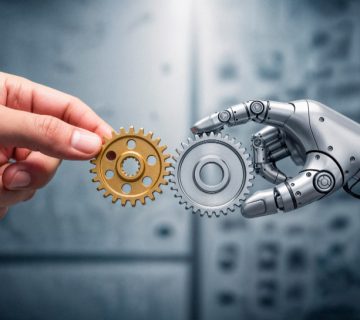When we speak about the “skills of the future,” most people instinctively think about learning to code, mastering artificial intelligence tools, or becoming fluent in data analytics. While these are undoubtedly valuable, the future of work is not only about technology—it’s about what technology cannot replicate. As machines continue to evolve, the true mark of human advantage will lie in how we think, feel, and decide. The competencies that will remain timeless are rooted in human intelligence—our ability to think critically, manage emotions, and uphold ethical principles even when surrounded by automation.
Critical thinking will remain the cornerstone of decision-making. In an age where AI generates solutions at lightning speed, the ability to question information sources, identify biases, and evaluate consequences becomes even more critical. Machines can process data, but they cannot grasp nuance or context in the way humans can. A future professional must know not only what to decide but also why—understanding the moral, social, and psychological layers behind every choice.
Equally enduring is emotional agility—the skill of recognizing, understanding, and managing one’s emotions while effectively responding to others’. As technology streamlines efficiency, workplaces risk becoming depersonalized. Leaders and employees who can maintain empathy, resilience, and adaptability will be the ones who create psychologically safe and innovative environments. Emotional agility ensures that collaboration doesn’t become transactional—it remains profoundly human.
Then there is ethical judgment, perhaps the most critical of all. As algorithms take over decision-making in fields like healthcare, finance, and law enforcement, the question arises: how do we make sure those decisions serve humanity’s best interests? Ethical thinkers will be the moral guardians of the digital era, capable of asking hard questions about fairness, transparency, and accountability. These individuals will safeguard the integrity of systems that otherwise operate without conscience.
In the future, technology will not make human intelligence obsolete—it will make its deeper dimensions more essential. The most resilient professionals will not be the ones competing against machines, but those redefining what it means to be intelligently human in a world shaped by algorithms.
While technical proficiency determines how we use technology, communication, curiosity, and cross‑cultural empathy determine how effectively we use it together. The workplaces of tomorrow will be global, hybrid, and interconnected. As machines automate processes, the distinctly human capabilities of connection and creativity will define who thrives and who struggles in the digital economy.
Communication will become an even greater differentiator. In virtual, multilingual, and cross-disciplinary teams, being able to express complex ideas with clarity and compassion will matter more than ever. It’s not simply about speaking fluently—it’s about listening actively, mediating differences, and ensuring mutual understanding in digital environments where nuance can easily be lost. The leaders of the future won’t just deliver presentations; they will inspire collaboration in a global chorus of perspectives.
Curiosity—the drive to question, explore, and experiment—will sustain innovation long after automation has handled routine tasks. Machines can optimize what already exists, but they struggle to imagine what could exist. Curiosity leads to breakthroughs, transforming data into insight and challenges into opportunities. It is the spirit that fuels learning, reinvention, and creative problem-solving—qualities no algorithm can imitate.
Cross‑cultural empathy might well be the defining global competency of this century. As organizations span continents, understanding cultural context, values, and communication styles becomes vital. The future workforce will require individuals who are not only culturally aware but also culturally adaptive—capable of bridging divides, respecting differences, and finding common ground amidst diversity. This ability goes beyond tolerance; it’s about transforming diversity into a powerful engine of creativity and cohesion.
Ultimately, when machines take over the tasks of processing, predicting, and producing, it is the human capacity for meaningful connection and imaginative inquiry that will give workplaces their heart and purpose. The future will belong to those who can balance technological literacy with human sensitivity—people who bring wisdom, curiosity, and compassion to every interface, meeting, and challenge.
In conclusion, the skills of the future are not futuristic at all; they are the deepest expressions of what it means to be human. Technology will continue to evolve at an exponential rate, but the competencies that will remain relevant regardless of technological shifts are the ones that bind people, ideas, and values together. Critical thinking, emotional agility, ethical judgment, communication, curiosity, and cross‑cultural empathy—these are not just career skills; they are the foundation of a sustainable, ethical, and human-centered future.





No comment